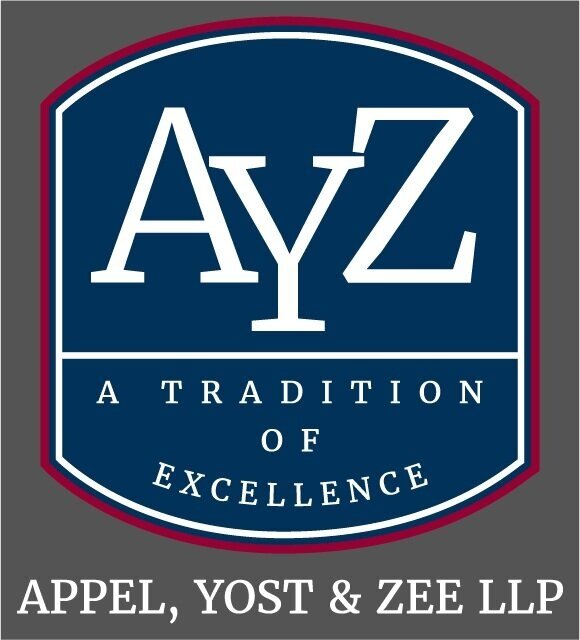SCOTUS Will Revisit Exhaustion Under IDEA
By AYZ Education Law Group
October 21, 2022
On Monday, October 3, 2022, the United States Supreme Court agreed to hear a significant case involving the Individuals with Disabilities Act (“IDEA”) “exhaustion” requirement. Under the IDEA, public schools must provide students with disabilities a free appropriate public education (FAPE) designed to meet their unique needs of each student in light of their circumstances, and prepare them for further education, employment, and independent living. When disputes arise over whether a school provided a student with FAPE, either party may turn to the IDEA’s administrative dispute-resolution system. However, pursuant to the statute’s exhaustion requirements, only upon the conclusion of these administrative procedures, may a party file suit in court regarding a denial of a FAPE.
At issue in Perez v. Sturgis Public Schools, is whether a student alleging a denial of FAPE may seek redress both administratively under the IDEA and in court under the Americans with Disabilities Act (ADA) or another federal disability law. The Court is presented with two primary questions: “(1) [w]hether, and in what circumstances, courts should excuse further exhaustion of the IDEA’s administrative proceedings under Section 1415(l) when such proceedings would be futile; and (2) [w]hether Section 1415(l) requires exhaustion of a non-IDEA claim seeking money damages that are not available under the IDEA.
Overview of the Case
The Plaintiff, Miguel Luna Perez (“Perez”), is a student who is deaf that attended Sturgis Public Schools (the “District”) from age 9 until 20. Due to his disability, Perez could not communicate with his teachers and classmates without an interpreter and American Sign language instruction. Despite this, the Perez family contends, the District assigned Perez a classroom aid who “was not trained to work with deaf students and did not know sign language.” Further, the family claims, the District awarded Perez grades that did not accurately reflect his mastery of school curriculum, which led the family to believe that Perez would earn a high school diploma after twelfth grade. Yet, only months before graduation, the District informed the family that Perez qualified only for a certificate of completion.
As a result, in 2017, Perez launched a due process complaint with the Michigan Department of Education, alleging, in pertinent part, that the District deprived him of a FAPE under the IDEA and discriminated against him in violation of the ADA. In June 2018, The District and the Perez family settled the IDEA complaint. The District agreed to place Perez in the Michigan School for the Deaf and pay for postsecondary compensatory education and sign-language services.
The settlement agreement did not release the ADA claim (which a hearing officer previously dismissed on jurisdictional grounds).
In 2018, Perez filed a complaint under the ADA in federal district court seeking compensatory damages for emotional distress. The District moved to dismiss, claiming that Perez failed to exhaust his IDEA administrative remedies. The federal district court agreed and granted the District’s motion to dismiss. On appeal before the U.S. Court of Appeals for the 6th Circuit, Perez argued that the dismissal of his ADA claims either constituted exhaustion or made exhaustion futile. Perez further argued that because he sought compensatory damages, which are unavailable under the IDEA, he was not required to exhaust administrative procedures before bringing his ADA claim to court. In a 2-1 ruling, the Sixth Circuit affirmed the federal district court’s decision and held that Perez failed to exhaust administrative procedures when he settled his IDEA claims. Further, to pursue his ADA claim in court, the 6th Circuit reasoned, Perez had to first. exhaust all of the IDEA’s administrative procedures
Perez subsequently filed a petition for a writ of certiorari before the United States Supreme Court (“SCOTUS”). The Court asked the U.S. solicitor general to opine on whether to accept the case. The U.S. solicitor general encouraged the Court to grant certiorari in order to resolve a split among the circuit courts.
Current Relevant Law
Of note, this is the second time in six years the Court will consider a case involving application of the IDEA’s exhaustion requirement. In Fry v. Napoleon Community Schools, SCOTUS held that a student does not always have to exhaust all the IDEA procedures before going to court when the essence, or “gravamen,” of the suit centers on a violation of another federal disability law rather than the IDEA’s central promise of a FAPE. However, the Court in Fry left “for another day” whether exhaustion of administrative proceedings is necessary where a student is seeking a remedy (i.e., money damages) unavailable under the IDEA.
Now What?
The Court will likely hear oral arguments in early 2023, with an opinion expected by next June. The Appel, Yost & Zee Education Group will continue to monitor and update clients on the case as it develops.
Should you have any questions about this case or any other IDEA or FAPE issues, please do not hesitate to reach out to William J. Zee or any of the attorneys in the Appel, Yost & Zee Education Group.
